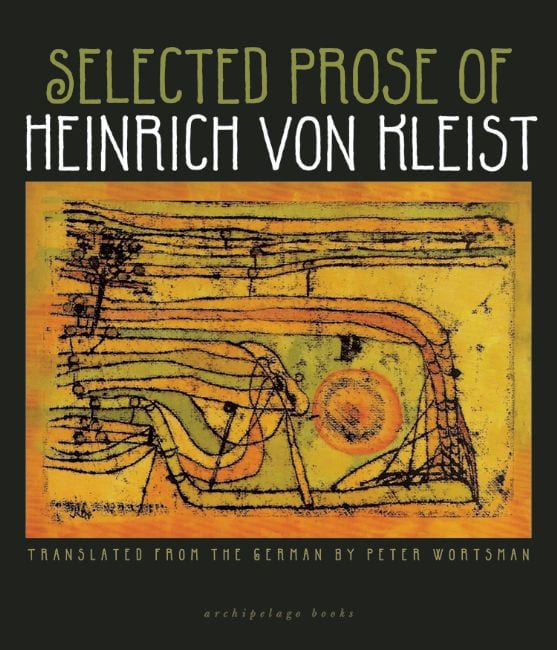Praise
Kleist left behind a corpus of works that, while small in quantity, were and still are among the finest German texts.
Kleist’s narrative language is something completely unique. It is not enough to read it as historical—even in his day nobody wrote as he did. . . . An impetus squeezed out with iron, absolutely un-lyrical detachment brings forth tangled, knotted, overloaded sentences painfully soldered together. . . and driven by a breathless tempo.
This collection of short stories, novellas and literary fragments . . . is impressive not only for its content but for its relevance centuries later. . . . A dark, charming collection of twisted fairy tales for grownups.
Exploiting to the full the rigors of German syntax, he uses language to impose order and meaning on a profoundly disordered world. Clause follows clause in a stately, dispassionate procession of appalling events, commas marking time, paragraphs and even single sentences stretching on inexorably for line after line. Catastrophes unfold in a subclause. Idiosyncrasies of word order defer full, terrible understanding to the last possible moment.
Dazzling. . . . Mesmeriz[ing]. . . . A collection of superbly crafted stories and essays that span cultures and centuries but deftly exposes the universality of human tragedy.
A gift to fans of German literary history. . . . Wortsman preserves much of Kleist's difficult sentence structures and punctuation, and succeeds at modernizing Kleist's sometimes antiquarian prose. The selection is streamlined, yet carefully balanced, thus giving readers all of Kleist's necessary lunacy and narrative brilliance.
The stories do not pause for breath; even less so in Wortsman's translations, which seek to convey the intricately enmeshed patterns of Kleist's syntax, so that, for example, the hundred or so pages of Michael Kohlhaas seem almost a single sentence. Once one engages with Kleist's narration, its peculiar urgency forces attention even as the plot spins into unforeseen byways.
What makes Kleist truly 'modern' is his insistence on the aesthetic significance of the world around which we must journey.
As a storyteller, he ranks most naturally with Kafka, who admired him and learned from him.
Michael Kohlhaas. . . . a story I read with true reverance.
Includes fictional classics such as "The Marquise of O"; "Michael Kohlhaas," one of the greatest tales of revenge and justice; and what might be considered one of the great pre-Freudian essays, "On the Gradual Formulation of Thoughts While Speaking."
The work displays Kleist as a master of narrative language, the often epigrammatic style mirroring the grotesque thematic material.
In the hands of von Kleist, paradox and dramatic irony are not literary devices but rather fundamental features of ordinary life.
In essence, Kleist consistently subverts our expectations. Like the earthquake in Chile, his fiction causes the apparently solid ground beneath our feet to shudder, crack, and, finally, give way.
His narratives are taut with psychological tension . . .
. . . the way that Kleist spirals the illogical actions of his characters amidst implausible events in a matter-of-fact tone balances the stories’ volution on a precipice that is singular even now.
Peter Wortsman’s direct and fluent translation makes this an accessible introduction to Kleist for English readers . . .
The single greatest influence on Franz Kafka, the greatest writer of the 20th century, through whom his work is often "telescoped", Kleist left behind a slim body of work that speaks to and haunts us, more relevant than ever in our time.

